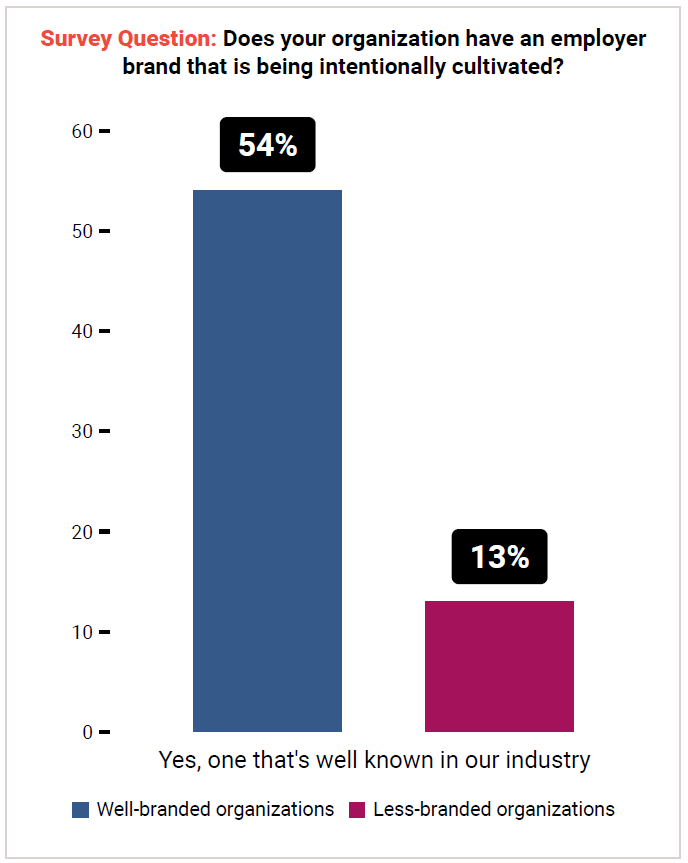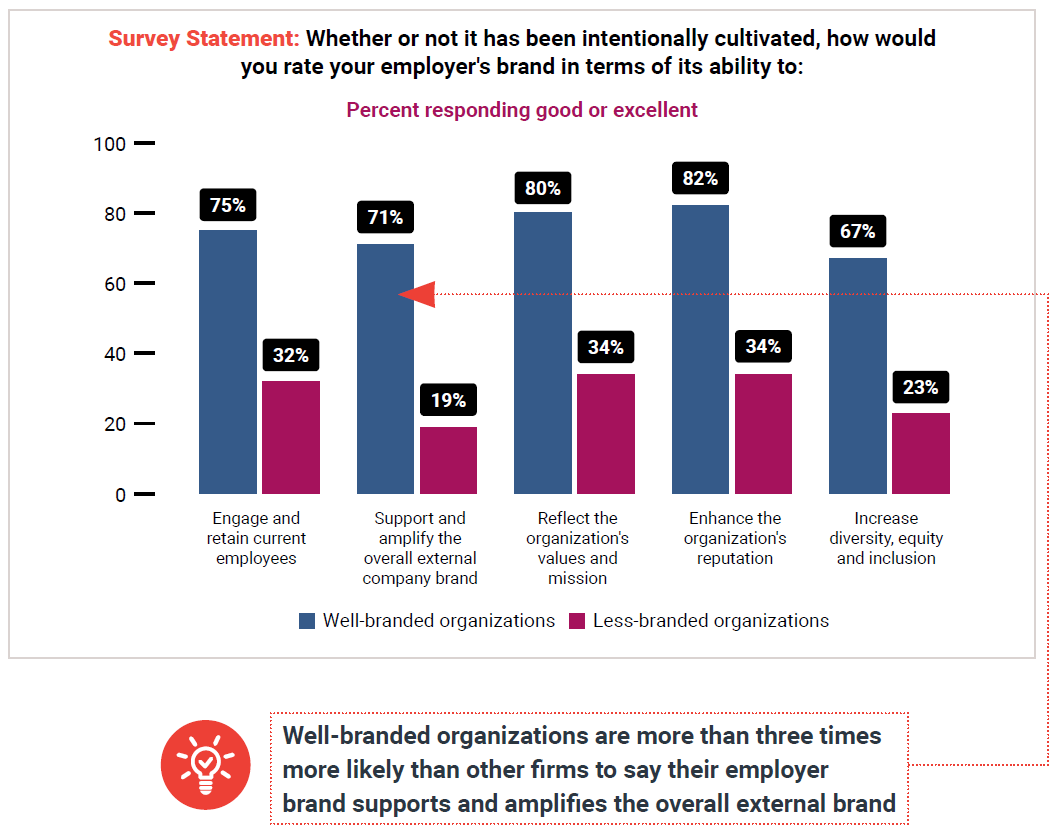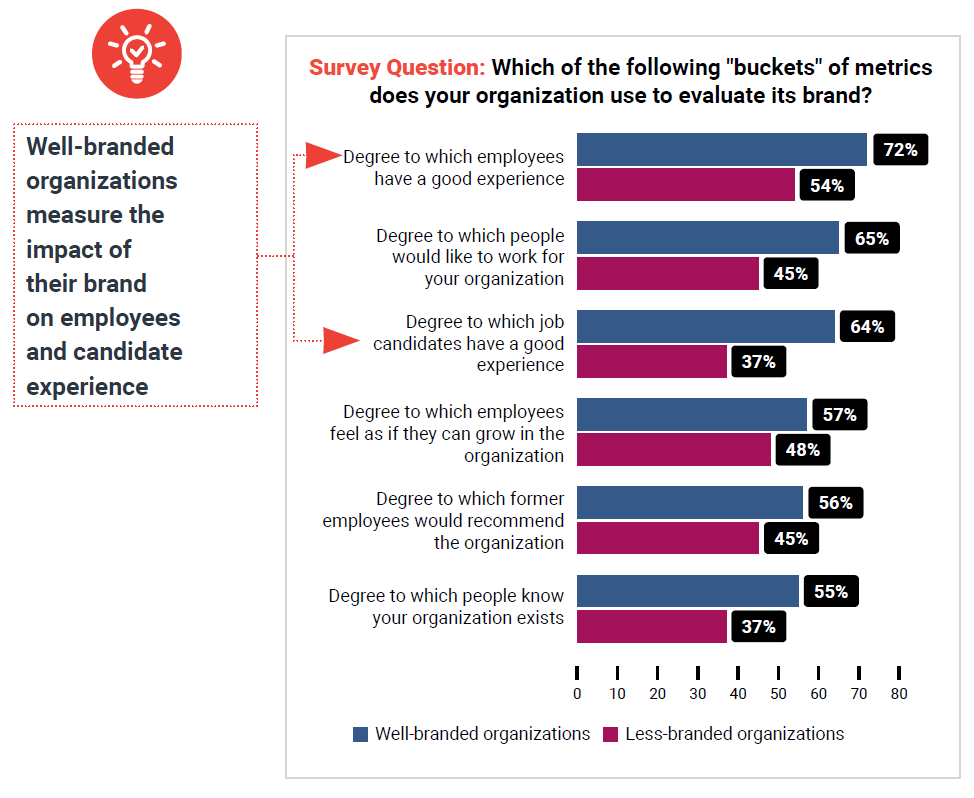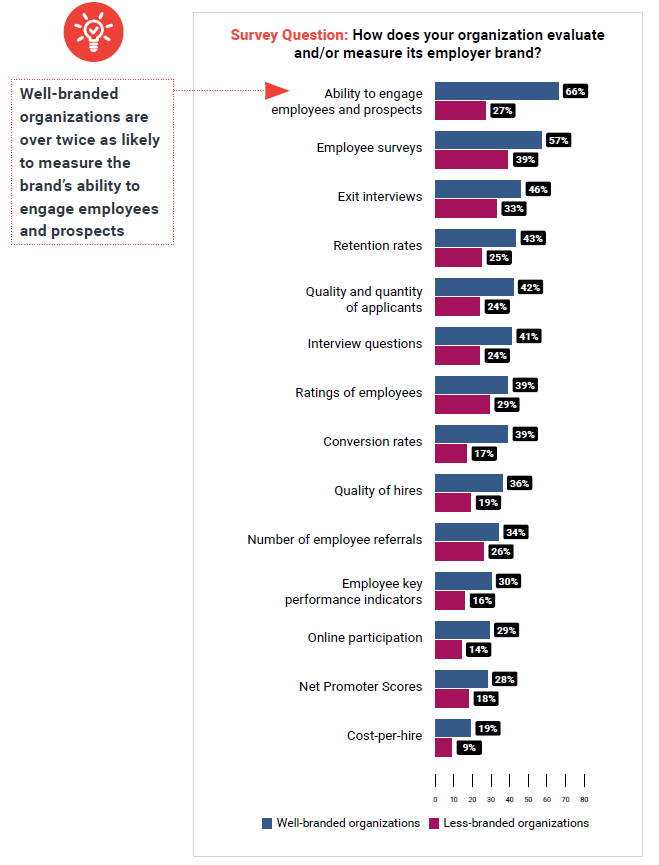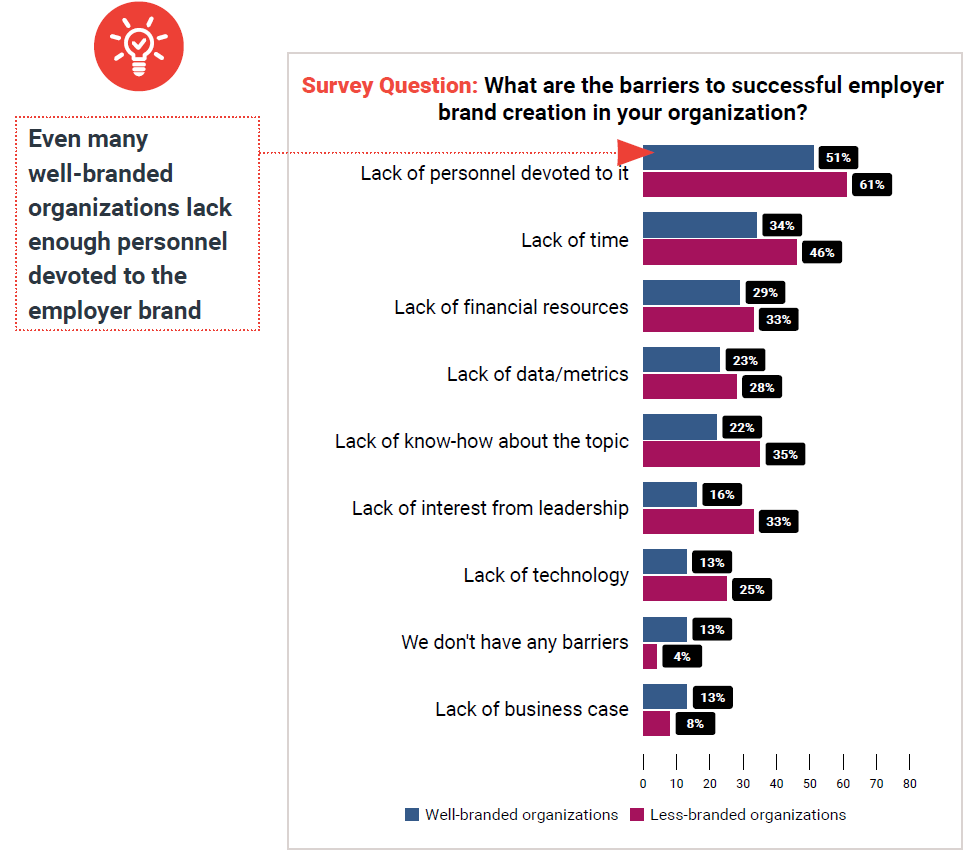Of all the many benefits of a strong employer brand, we concluded that its potential as a recruitment asset is the most relevant for today’s HR professionals. We therefore segmented our respondents into two groups based on their ability to attract high-quality candidates:
- Well-branded organizations: Those who report that their organization’s branding efforts do an excellent or good job at attracting high-quality candidates.
- Less-branded organizations: Those that report their organization’s branding efforts do an average, below average or dismal job at attracting high-quality candidates.
A note of caution on our findings: correlation is not the same as causation, and we therefore cannot state that any particular practice has directly resulted in employer branding success. However, we did find that well-branded organizations share certain characteristics that might suggest effective techniques for building and maintaining a successful employer brand.

Well-branded companies are four times more likely than less-branded organizations to have a widely known employer brand in their industry
Intentionally cultivating your employer brand does seem to pay off. More than half (54%) of respondents from well-branded companies report that they have an employer brand that is widely known in their industry in comparison to just 13% of less-branded organizations.
Well-branded organizations have better brand outcomes across the board
Companies with a successful employer brand don’t only see benefits when it comes to attracting high-quality candidates. Well-branded organizations also report that their employer brand helps with the engagement and retention of existing employees (75%), supports their overall company brand (71%), and increases the diversity, equity and inclusion in their organizations (67%).
Well-branded organizations are more ambitious about brand measurement
Well-branded organizations are more likely to monitor the impact of their employer brand on multiple categories of metrics, including the “degree to which employees have a good experience” (72% vs. 54%) and the “degree to which job candidates have a good experience” (64% vs. 37%).
Well-branded organizations are also more likely to leverage a range of specific metrics to determine their brand’s impact
Well-branded organizations are more likely than other organizations to use a wide range of specific metrics to gauge their brands. They are especially more likely to evaluate the employer brand in terms of its ability to engage employees and prospects. Even so, well-branded organizations could do more. Only 28% of them evaluate Net Promoter Scores and just 39% look at the ratings of employees.
Well-branded companies are more likely to have leadership buy-in for their employer branding efforts
Respondents from well-branded organizations are far less likely to report that they struggle with a lack of interest in employer branding from company leadership. Whereas a third of the respondents from lessbranded companies say a lack of interest from leadership is a barrier, only about half as many from well-branded organizations say the same.
However, even well-branded companies still face some significant barriers. About half of them, for example, say they lack sufficient personnel focusing on their employee brand.
